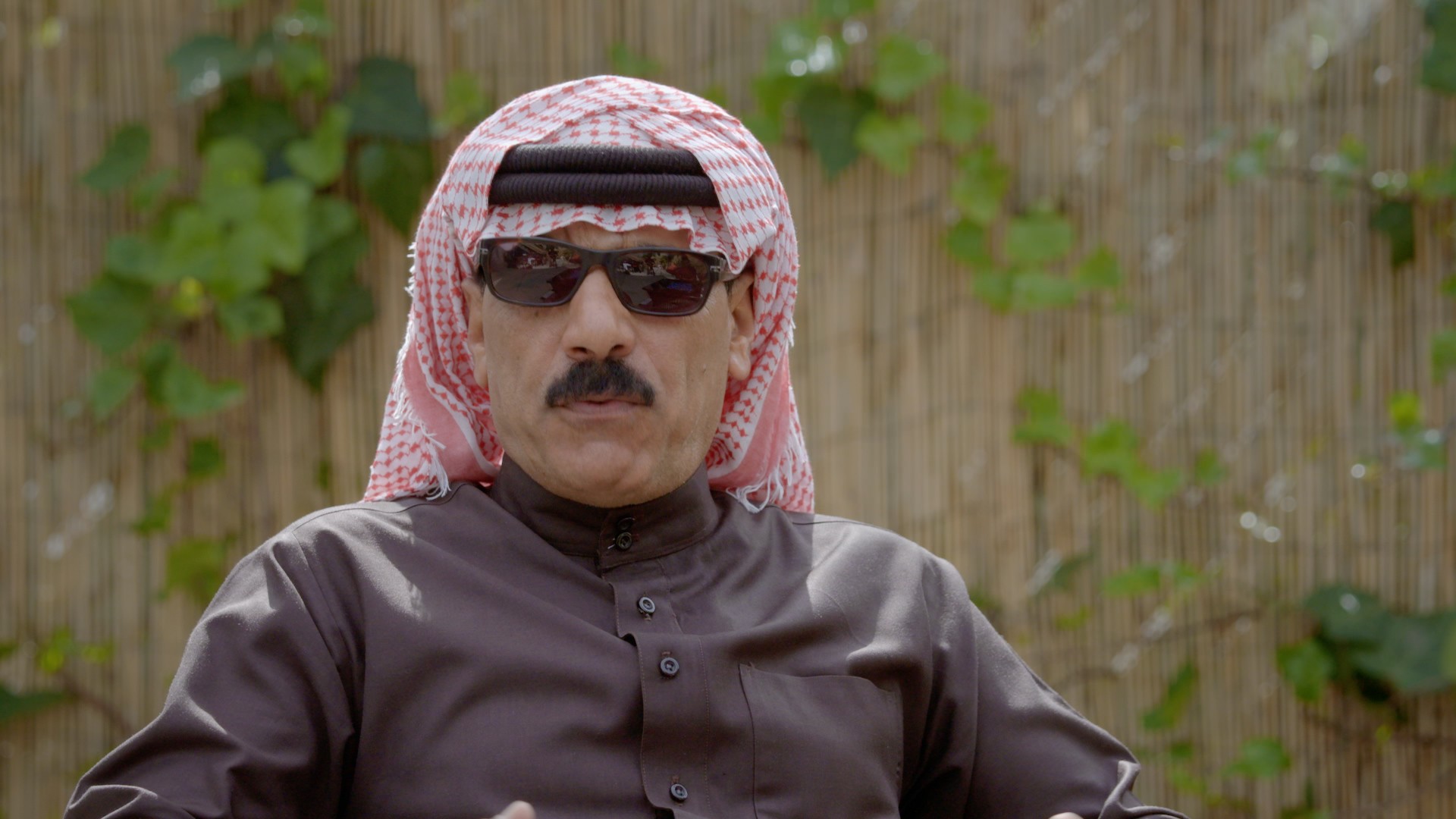This article originally appeared on VICE ArabiaA woman covered in celebratory henna is surrounded by a cheering crowd of her closest family and friends. At first sight, the scene before me resembles a traditional Moroccan wedding. However, the groom won’t be coming because the star of this party is not a bride on her wedding day, but a divorced woman about to return to her parents house.Divorce parties are a common ritual in Beidane communities – a large ethnic group with over 100 tribes, spread across southern Morocco, Algeria, Mauritius, Mali and northern Senegal. Though Beidanes live across the borders of five African countries, that hasn’t stopped the millions strong community from keeping their longstanding traditions and rituals alive.
Advertisement
A woman arrives at her divorce party in Western Sahara.
According to Dr. Bouzid Al Ghaly, a researcher at the Alem and Omran research centre in Rabat and an expert in Beidane culture, the event was originally created to show that divorce was not the end of the world; rather, it's a transitional period that can lead to a new life and possibly another marriage. It is also a way to honour women – to reiterate that they have value regardless of whether they're married or divorced. Additionally, in the past, in a time when communication between groups and families was more difficult than it is today, these elaborate parties were held as a way of announcing to other tribes that the woman was potentially ready to remarry. To really understand the event's modern significance, I spoke with three women – who each requested I only use their first name – about what divorce parties mean to them.After two years of marriage, Fatemato, 70, returned to her family’s house in the Moroccan city of Smara, along with her daughter. She was never blamed for the failure of her marriage, as is the case in many Middle Eastern societies. "My friends and family welcomed me back and even organised a dinner and a party in my honour,” Fatemato said. "The warm welcome washed away the grief I felt – at least temporarily."
Read more from VICE Arabia: The Blogger Who Took On ISIS
Two years after splitting from her first husband, she remarried. "The Quran says couples should either 'stay together with honour or separate with kindness,'" she explained. "I am grateful to come from a culture that showed me kindness."
Read more from VICE Arabia: The Blogger Who Took On ISIS
Two years after splitting from her first husband, she remarried. "The Quran says couples should either 'stay together with honour or separate with kindness,'" she explained. "I am grateful to come from a culture that showed me kindness."
Advertisement
Shams, 40, remembers her divorce party as being just as festive as her first wedding: "I was covered in henna and serenaded. I felt loved and valued and that definitely helped me get over the divorce. I shouldn't have married that young: I wasn't even 20 years old." Shams added that the whole experience taught her empathy, which made her a better mother and wife to her second husband.
Divorce parties often feel a lot like weddings.
Unlike Fatemato and Shams, Halima, who's in her twenties, thinks divorce is nothing to be celebrated. She regards these events as an insult to women. “What does it mean for a woman to celebrate her divorce?” she says, “Is she celebrating her failure? I don’t think that it has anything to do with honouring her.”After a marriage that lasted only a few months, Halima says she was warmly welcomed back home. Just seeing how happy her father was to have her back, she explains, was all she ever wanted – she didn't need a party thrown in her honour. "Going home and seeing my family was the true celebration," she says, "away from the exaggerated festive atmosphere of a divorce party."
Watch: Diplo thinks this Syrian wedding singer will be EDM's next star
Sheik Syed Abdi Al Edrisi, a local Islamic leader in the Sahrawi region of southern Morocco, thinks that a lot of people object to the ceremony because local media often misrepresents its intentions. "People should come here and see for themselves that we’re not celebrating divorce," he said."Yes, these are parties for divorced women, but not celebrations of divorce, as the media often claims. The goal is to publicly declare the value we have for our women. Often, when other men later come to propose, they do so not just with the intention of living with the divorced woman, but to help her regain her confidence and standing among her group, and the surrounding region.” By dressing up like a bride on her wedding day and being celebrated by those closest to her, she can let go of the past, and look forward to new beginnings.
Watch: Diplo thinks this Syrian wedding singer will be EDM's next star

Sheik Syed Abdi Al Edrisi, a local Islamic leader in the Sahrawi region of southern Morocco, thinks that a lot of people object to the ceremony because local media often misrepresents its intentions. "People should come here and see for themselves that we’re not celebrating divorce," he said."Yes, these are parties for divorced women, but not celebrations of divorce, as the media often claims. The goal is to publicly declare the value we have for our women. Often, when other men later come to propose, they do so not just with the intention of living with the divorced woman, but to help her regain her confidence and standing among her group, and the surrounding region.” By dressing up like a bride on her wedding day and being celebrated by those closest to her, she can let go of the past, and look forward to new beginnings.